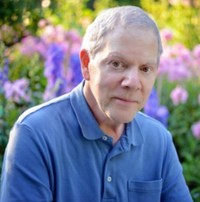4 Ways Psychology and Faith Work Together for Good
- Dr. Kenneth Boa Author
- Updated Jan 11, 2024

Subscribe to Dr. Ken Boa's free teaching letter here.
With the success of the natural sciences in explaining the physical world, psychologists and other social scientists tried to apply the scientific method to studying human behavior.
Psychology especially works to develop theories of human behavior and to propose solutions to human problems.
Thus, psychology is both descriptive — information about what people do — and prescriptive — instruction about what people should do. This means that psychology can pose direct challenges to both the faith and values of Christian people.
1. They Acknowledge Our Souls
The soulless science. For well over a century, psychologists have attempted to explain humanity. Nineteenth-century German thinkers who pioneered the early developments of what became modern psychology believed that it should be a purely physical science — “psychology without a soul,” as they called it.
This was a turning point in the history of thought. Up until then, people accepted that human beings were both spiritual and physical beings, and the only question was just how these two were related.
In the wake of Darwinism, the very existence of a spiritual reality came under fire, and the burden of proof was placed on those who would attribute any aspect of human behavior to an immaterial soul.
The idea is that there is no soul-dominated psychology throughout most of the 20th century, both in the psychoanalytical school of Sigmund Freud and among behavioral psychologists.
Behaviorists argued that psychology’s purpose was to understand human nature to control and change it. They looked upon human beings as strictly physical, operating strictly according to mechanistic laws of physics and chemistry.
In this view, the soul does nothing and can, therefore, safely be dismissed as, in the words of Sir Gilbert Ryle, “the ghost in the machine.”
Thus, corresponding to the “God of the gaps” problem in the natural sciences, psychology raised the “soul of the gaps” problem: are human beings merely highly intelligent animals, or do we have a “soul” or “spirit” that transcends the biological? If we do have souls, what do they do, if anything, that is distinct from the operations of the brain?
The revival of the soul. Beginning in the 1960s, the mechanistic, materialistic view of human nature championed by most psychological theories began to break down. Psychologists concluded that human beings were too complex to be explained by physiology.
Further, the evolutionary premise underlying modern psychology came under increasing attack from scientists from a wide variety of religious and agnostic positions.
The theory of naturalistic evolution has never achieved a consensus inside or outside of the scientific community. And if evolution is not true, the door is wide open for affirming the creation of humanity by God and our endowment with an immaterial soul.
In addition, the spiritual vacuum created by the rise of secular humanist culture was unsustainable. Carl Jung, a former associate of Freud, had described modern man as “in search of a soul.”
Jung had a mystical and occultic approach to religion, and in time, the culture caught up with him. The 1960s saw an explosion of interest in the occult, “psychedelic” experiences through drugs, and Eastern religions and mystical practices that eventually came to be known as the New Age movement.
Admittedly, the “soul” in these mystical traditions is not quite the same as that of traditional Christian and Jewish beliefs. The soul is often seen as an immanent aspect of the human person related to our inner life.
But New Age believers are much more open to the idea of the soul continuing after death; indeed, most New Agers accept the idea of reincarnation as basic to their worldview.
The increasingly widespread recognition of the inadequacy of “psychology without a soul” has led to a revival of interest in the soul and to more spiritual ways of viewing human nature.
In addition, phenomena such as near-death experiences have been seen as providing a scientific confirmation of the existence of the soul.
Amid this revival of belief in the soul and the importance of spiritual matters, Christians need to offer a clear understanding of human nature and the soul that takes into account the diversity of views and the advances in knowledge that psychology has yielded.
While we can and should continue to make the case for the reality of the soul, we must also recognize that human beings are fundamentally constituted as a unity.
While the Bible certainly teaches that human beings have souls that can and do exist separately from the body after death (Matthew 10:28; Revelation 6:9-11; cf. Luke 16:9-31; 23:43; Philippians 1:21-23), it also views death as an unnatural division of what was intended to be a unity (Genesis 2:7; 3:19; 1 Corinthians 15:26).
For this reason, biblical theologians have suggested describing the biblical view as a “holistic duality” rather than simply as a dualism or dichotomy.
Rather than dualism, some Christians believe the Bible teaches that human nature is a trichotomy of body, soul, and spirit.
The body is the actual material part, the soul consists of the mind, will, and emotions, while the spirit is the Godward part of human nature that gives us our capacity for worship and spiritual experience.
Hebrews 4:12 tells us, “The word of God is sharper than any two-edged sword, piercing to the division of soul and of spirit, of joints and of marrow.” The imagery of joints and marrow is revealing.
Taking our cues from this picture, think of the soul as the bone and the spirit as the marrow. Just as the marrow is in the center of the bone, the spirit is at the center of a person’s soul.
Trichotomy would thus allow all observable, empirical behavior as well as all mental states to have a natural basis while affirming a transcendent, spiritual part of human nature inaccessible to the scientist.
This position points to an astonishing truth: our mind or inner person serves to connect us both to the physical world and to the spiritual realm of God (and the angels) to which our spirits depart at the death of our bodies.
We are spiritual creatures with a monumental capacity for transcendence — for spiritual experiences, for worship of God, and for existence beyond the grave.
2. They Search for Ongoing Healing Not a Cure
While we human beings have a capacity for transcendence, we also have a capacity for travesty. We have such noble and lofty ideals, and sometimes we even seem to realize them, but more often than not, we disappoint ourselves with attitudes and behaviors that are unworthy of the name human. What is wrong with us, and what can be done about it?
Although there have been dissenting voices heard in the psychological establishment, by far, the most common answer to the problem is that people are basically good, and the solution is to connect to that basic goodness.
Undesirable behaviors are blamed on the environment and on physiology — whether genetic predispositions, chemical imbalances, glands, or other biological factors.
The debate has been over whether human behavior is determined more by biological or environmental factors — the “nature versus nurture” debate.
3. They Acknowledge Our Sinful Nature
Applying psychological “explanations” to human behavior has weakened belief in personal responsibility.
In the American court system, in countless cases, the defense has cited psychological or societal factors to support a plea of innocence or at least of diminished responsibility.
This approach was pioneered by Clarence Darrow in the notorious Leopold and Loeb murder case. Darrow had won an acquittal of the two young men on the grounds that their act of violence was the fault of society.
Such excuses for misbehavior have always had their critics. One basic problem is that quite frequently blame is merely shifted around from one person to the next.
This leads to a logical dilemma: if it’s always someone else’s fault, then it is somehow everyone’s fault and at the same time no one’s fault!
Thus, the “blame game” becomes a vicious circle in which any explanation of human evil is possible, and no explanation is without problems.
RELATED PODCAST:
4. They Go Beyond Simplistic Answers
In the Christian view, human nature is neither good nor bad without qualification. God created human beings good (Genesis 1:26-31), but the first couple fell into sin and passed a disposition to sin down to all their descendants (Genesis 3; Romans 5:12-14).
Even after the Fall, human beings continue to be made “in God’s image” (Genesis 1:26-27; 9:6; James 3:9), and as such, are capable of good. Yet, all of us fall woefully short of realizing our ideal and our potential for good (Romans 3:23).
Thus, it is not correct to say that human beings are “basically good” or essentially bad. Rather, human beings are good creatures whose goodness has been severely compromised and corrupted.
Only the biblical worldview can make sense of human experience. The secular view of human beings as animals denies the glorious potential within us, while the New Age view of human beings as gods who have forgotten their divinity denies the humiliating reality of our daily failures.
The Christian perception of humanity, by contrast, is refreshingly fair and realistic — neither denying our dignity nor ignoring our ignominy.
We do evil because we are suffering from a spiritual disease, a category missing in secular psychological theories. The only spiritual disease humanistic psychology might recognize is temporary amnesia.
Nearly every variety of psychology in the 20th century has prescribed some kind of recollection or remembrance therapy as the solution to psychological problems.
They are all variations on a theme — that wholeness, wellness, and the fulfillment of our human potential are to be found within ourselves with the resources we already have.
Though the spiritual dimension of the human condition is primary, Christians should not ignore the physiological, psychological, or sociological dimensions of human life. The answer to psychological reductionism is not to replace it with theological reductionism.
Christians need to develop an approach to understanding human behavior that takes all aspects of the human condition fully into account.
The theological perspective is primary because, unlike secular theories, Christian theology offers a transcendent perspective on the human condition based on the revelation of God in Scripture.
The Christian doctrine of humanity recognizes that to be human is to be a biological, rational being, living in a physical environment in relationship with others, and having the potential for a unique relationship with God — a potential thwarted by sin.
Thus, Christian doctrine allows for a more full-orbed, coherent appreciation of human nature in all its complexity and seeming contradictions than any of the alternatives.
Christians must uphold the biblical view of human nature and sin while recognizing and benefiting from genuine insights from psychology and the other social sciences.
These have shown that physiological and environmental factors play much larger roles in human behavior than most Christians were willing to acknowledge in the past.
The proper response to these findings is to work hard to understand how these findings can enhance or refine the Christian view. Efforts toward that end are still in the early stages.
While many such efforts will have to be judged inadequate or even wrong-headed, in the long run, the Christian community will be the stronger for it.
We have what psychologists, psychotherapists, and their patients are ultimately seeking: the key to understanding ourselves. That key is our identity as creatures made in the image of God and suffering from the effects of a broken relationship with God.
If we can communicate this message in a way that fully coheres with the genuine insights into the human condition that are discovered in the social sciences, ours will be a clear message of realism and hope in a world in desperate need of both.
For further discussion, join Dr. Boa’s weekly live interactive webinar, Think on These Things
For further reading:
Why Do Some Believe That God Is Dead?
4 Ways People Question Reality and Ignore the Truth
Photo Credit: ©iStock/Getty Images Plus/StockRocket

Kenneth Boa equips people to love well (being), learn well (knowing), and live well (doing). He is a writer, teacher, speaker, and mentor and is the President of Reflections Ministries, The Museum of Created Beauty, and Trinity House Publishers.
Publications by Dr. Boa include Conformed to His Image, Handbook to Prayer, Handbook to Leadership, Faith Has Its Reasons, Rewriting Your Broken Story, Life in the Presence of God, Leverage, and Recalibrate Your Life.
Dr. Boa holds a B.S. from Case Institute of Technology, a Th.M. from Dallas Theological Seminary, a Ph.D. from New York University, and a D.Phil. from the University of Oxford in England.




















